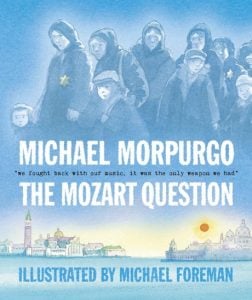 There have been many books written about Auschwitz experiences. Heather Morris’ book, ‘the Tattooist of Auschwitz’ is based on the true story of Lale Sokolov – a Jewish survivor, following her interviews with Lale (Ludwig Skolov). In many ways, the story is very familiar. It is a story which combines resilience, the willpower to survive, and the weaving of relationships which will make a difference.
There have been many books written about Auschwitz experiences. Heather Morris’ book, ‘the Tattooist of Auschwitz’ is based on the true story of Lale Sokolov – a Jewish survivor, following her interviews with Lale (Ludwig Skolov). In many ways, the story is very familiar. It is a story which combines resilience, the willpower to survive, and the weaving of relationships which will make a difference.
In other ways, it should be renamed ‘Nine Lives’ – as Lale manages to survive several difficult situations, in which many others met tragic ends, many times. His personal skills enable him to be in a position of privilege, negotiating small benefits for fellow prisoners, aiming to ease the harsh conditions of a raw concentration camp.
It is in his role as tattooist where he first meets Gita – a young woman whose life gives his purpose and hope. This hope, he reflects back to Gita, her friends and other prisoners, providing some relief in their harsh and mundane existence.
Based on a true story, the Tattooist of Auschwitz combines historical events and the power of storytelling to remind us of a dark period of world history, while highlightlighting the power of the human spirit. The relationship of Lale and Gita blossoms in a detention camp, inspite of their forboding circumstances; and Lale’s support of others makes you wonder when and if he will be caught out by the camp commanders. But in the spirit of survival, Lale perseveres while ever he can.
The historical accuracy of the novel has been questioned by some reviewers, but we must be reminded that it is a STORY based on the RECOLLECTIONS of a Holocaust survivor interpreted/RETOLD by another. The author answers critics thus:
“I have written a story of the Holocaust, not the story of the Holocaust. I have written Lale’s story.” In November, she told the New York Times: “The book does not claim to be an academic historical piece of non-fiction, I’ll leave that to the academics and historians.” Author Heather Morris speaks to the Guardian, https://www.theguardian.com/books/2018/dec/07/the-tattooist-of-auschwitz-attacked-as-inauthentic-by-camp-memorial-centre
The Tattooist of Auschwitz is a moving depiction of lives impacted by war – the loss, the cruelties, the friendships, the hardships, the loves… The resilience of the human spirit shines in this novel and it the memories of this harsh experience which Heather Morris brings to the page in Lale’s story, as told to her in many heartbreaking interviews.
I was not as emotionally impacted by this story as when reading The Book Thief or even The Boy in Striped Pajamas (which has also been criticised for several historical inaccuracies).
As stated earlier, there are many other stories based on the Holocaust which YA readers might enjoy, such as the Once series by Maurice Gleitzman, Alexander Altman A10567 and The Wrong Boy. Not all are going to be as accurate as you might expect from Corrie Ten Boom’s the Hiding Place or the Diary of Anne Frank, but telling the stories of survivors may give some understanding and hope that such an atrocious event may never happen again.
# Does Historical Fiction need to be 100% accurate?
# Heather Morris wrote this after years of interviews with an elderly survivor of the Holocaust – where else might some inaccuracies occurred in the tale?
# There is a YA version of the Tattooist of Auschwitz which may be more acccessible for younger readers.
# Here’s a range of Holocaust fiction found on GoodReads. Read the reviews to choose others you may like to followup, and maybe even add you own comment or rating once you join.
